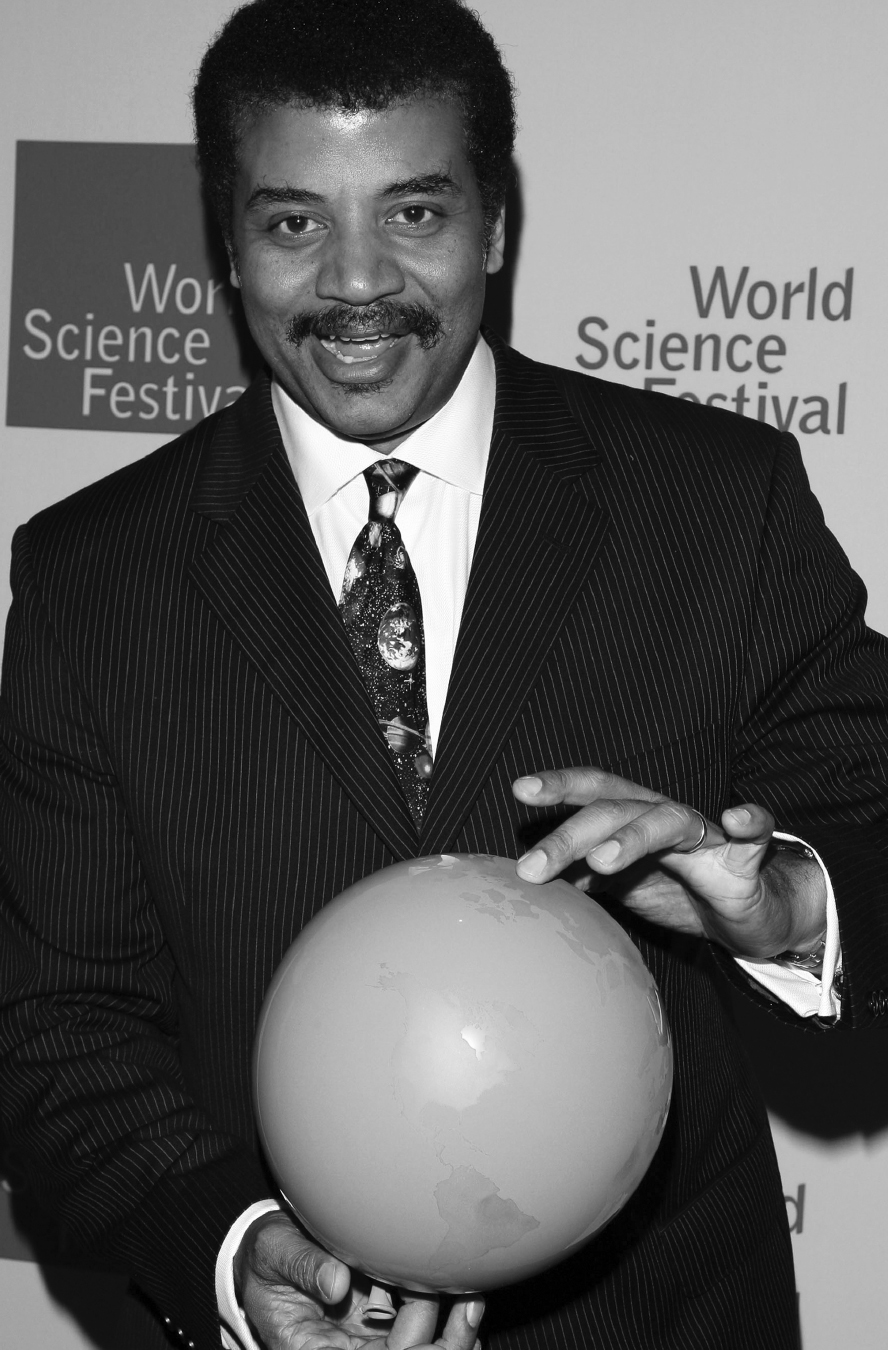14 Informative Speaking
14 Informative Speaking
Page 226

IN CHAPTER 14
The Goals of Informative Speaking
Topics for Informative Presentations
Approaches to Conveying Information
Guidelines for Informative Speeches
 Look for LearningCurve throughout the chapter to help you review.
Look for LearningCurve throughout the chapter to help you review.
bedfordstmartins.com/commandyou
It’s not surprising that people enjoy asking astrophysicist and planetarium director Dr. Neil deGrasse Tyson questions: What happens if you get sucked into a black hole? Why was Pluto demoted to “dwarf planet” status? What is surprising, however, is that people recognize who Tyson is. After all, even noted scientists are not often celebrities, and unless you’re a fan of the television show The Big Bang Theory, astrophysics is a field that seems far removed from everyday life. Yet Tyson has, in many ways, become the face of science today, having written several bestselling books, given lectures around the country, hosted NOVA Science Now on PBS, and made appearances on The Daily Show, The Colbert Report, and Jeopardy!, among others. He has more than 36,000 Facebook fans and over 124,000 followers on Twitter.
Tyson’s popularity is rooted in both his cosmic expertise and his communication skills: he has a knack for presenting the vast mysteries of the universe in ways that laypeople can understand. During a presentation at the University of Texas, for example, Tyson noted, “We have no evidence to show whether the universe is infinite or finite,” before explaining that astrophysicists can only go so far as to calculate a horizon—similar to the horizon line viewed from a ship at sea. He then continued that comparison: “Yet a ship is pretty sure that the ocean goes beyond the horizon of the ship, just as we are pretty sure the universe extends beyond our particular horizon. We just don’t know how far” (Tyson, 2009).
Tyson recognizes the challenge of informing the general public about complex scientific ideas that researchers devote decades to understanding: “It was not a priority of mine to communicate science to the public,” Tyson says. “What I found was that enough members of the public wanted to know what was going on in the universe that I decided . . . to get a little better at it so I could satisfy this cosmic curiosity” (cited in Byrd, 2010).
CHAPTER OUTCOMES
After you have finished reading this chapter, you will be able to
Describe the goals of informative speaking.
List and describe each of the eight categories of informative speeches.
Outline the four major approaches to informative speeches.
Employ strategies to make your audience hungry for information.
Structure your speech to make it easy to listen to.
Like Neil deGrasse Tyson, the best informative speakers share information, teach us something new, or help us understand an idea. Clearly, Tyson has a talent for informative presentations. He knows how to analyze his audience members and tailor his presentations to engage them quickly. He organizes his information clearly and efficiently so that listeners can learn it with ease. And he presents information in an honest and ethical manner. In this chapter, we’ll take a look at how you can use these same techniques to deliver competent informative speeches in any situation.